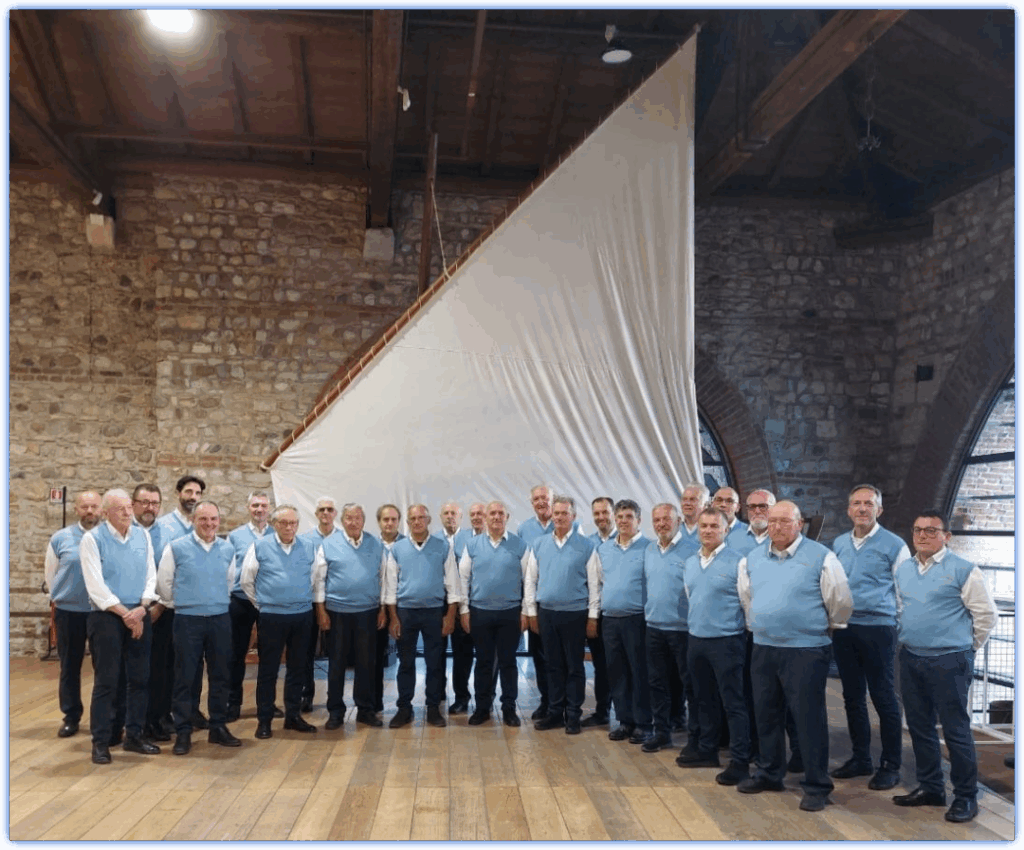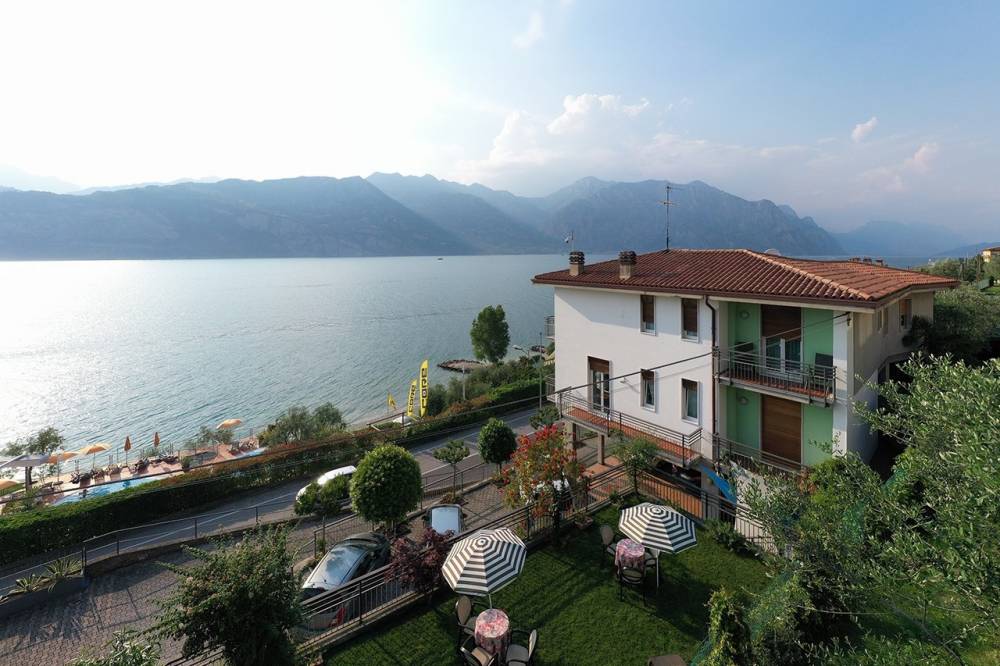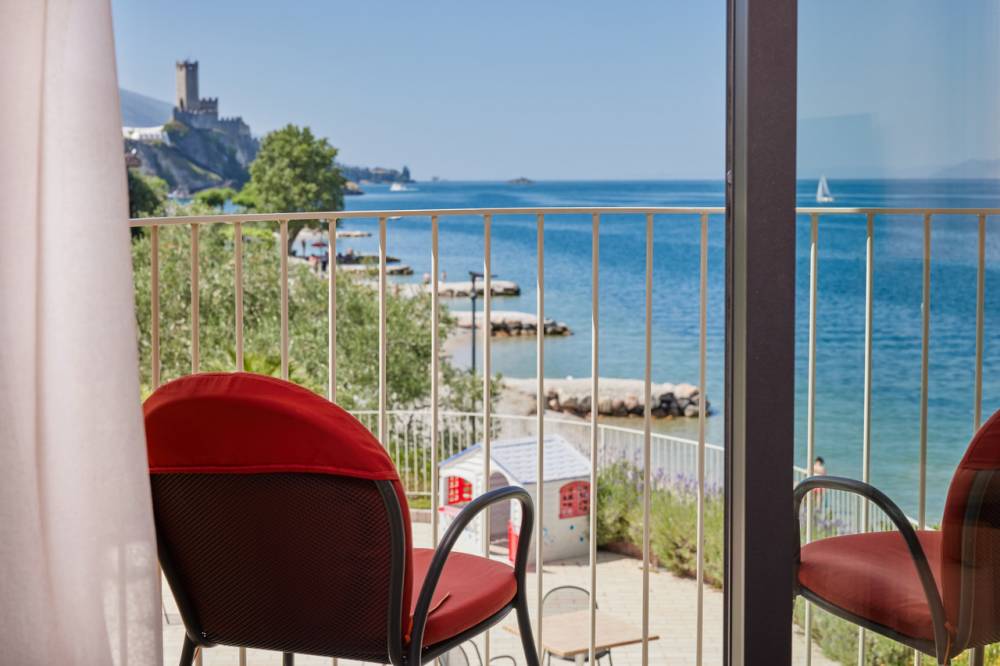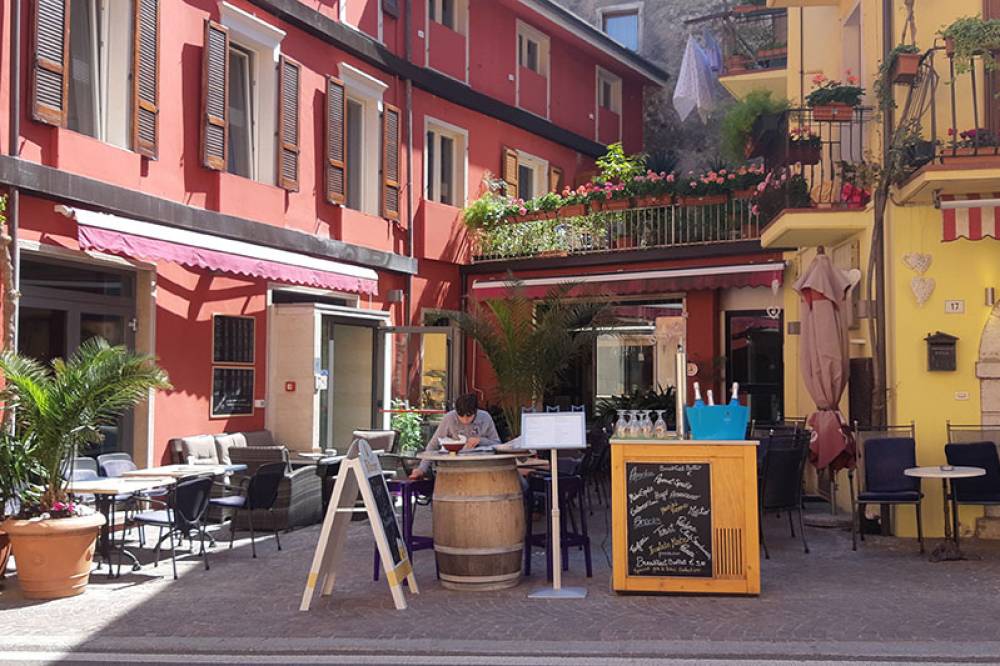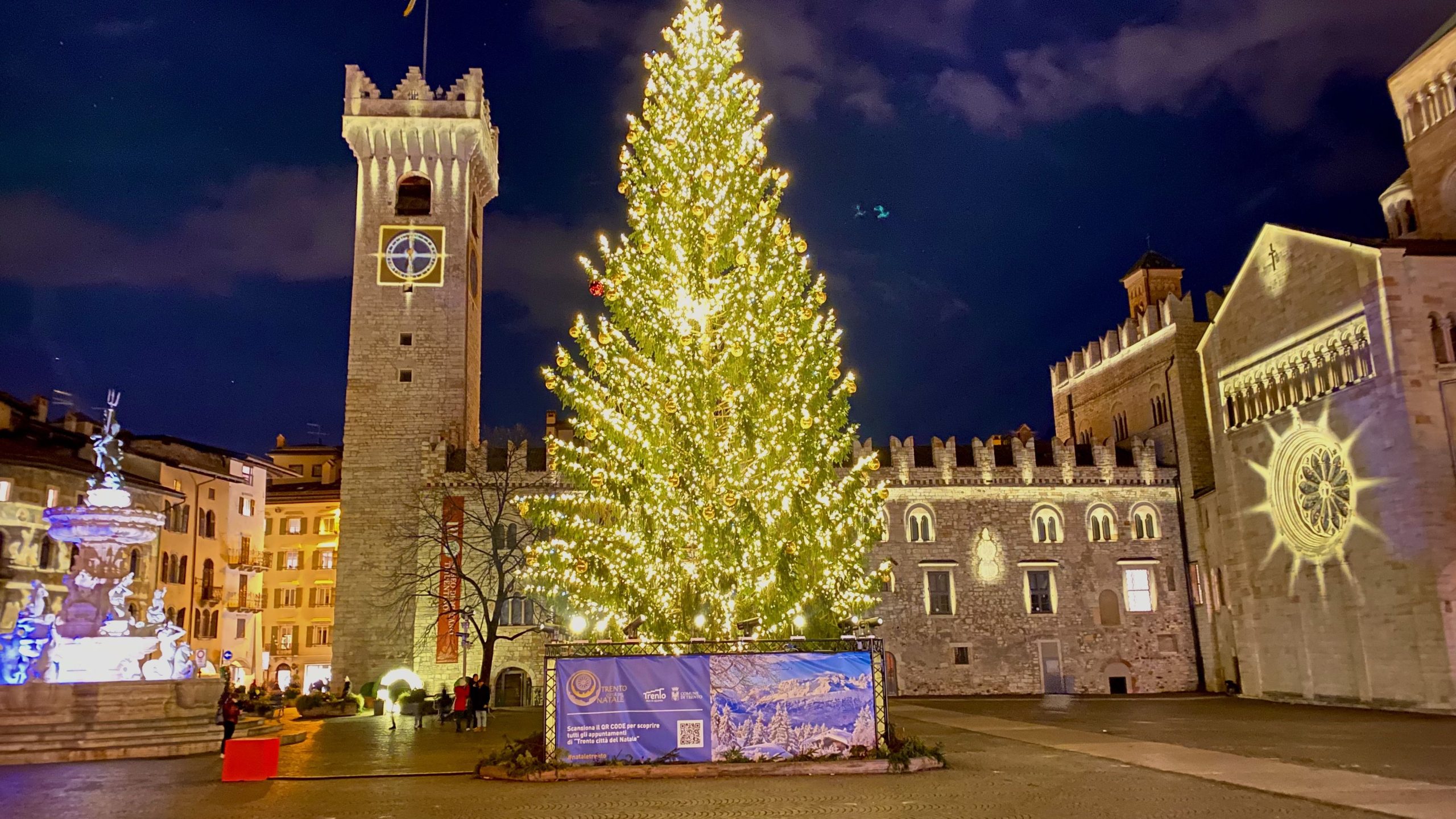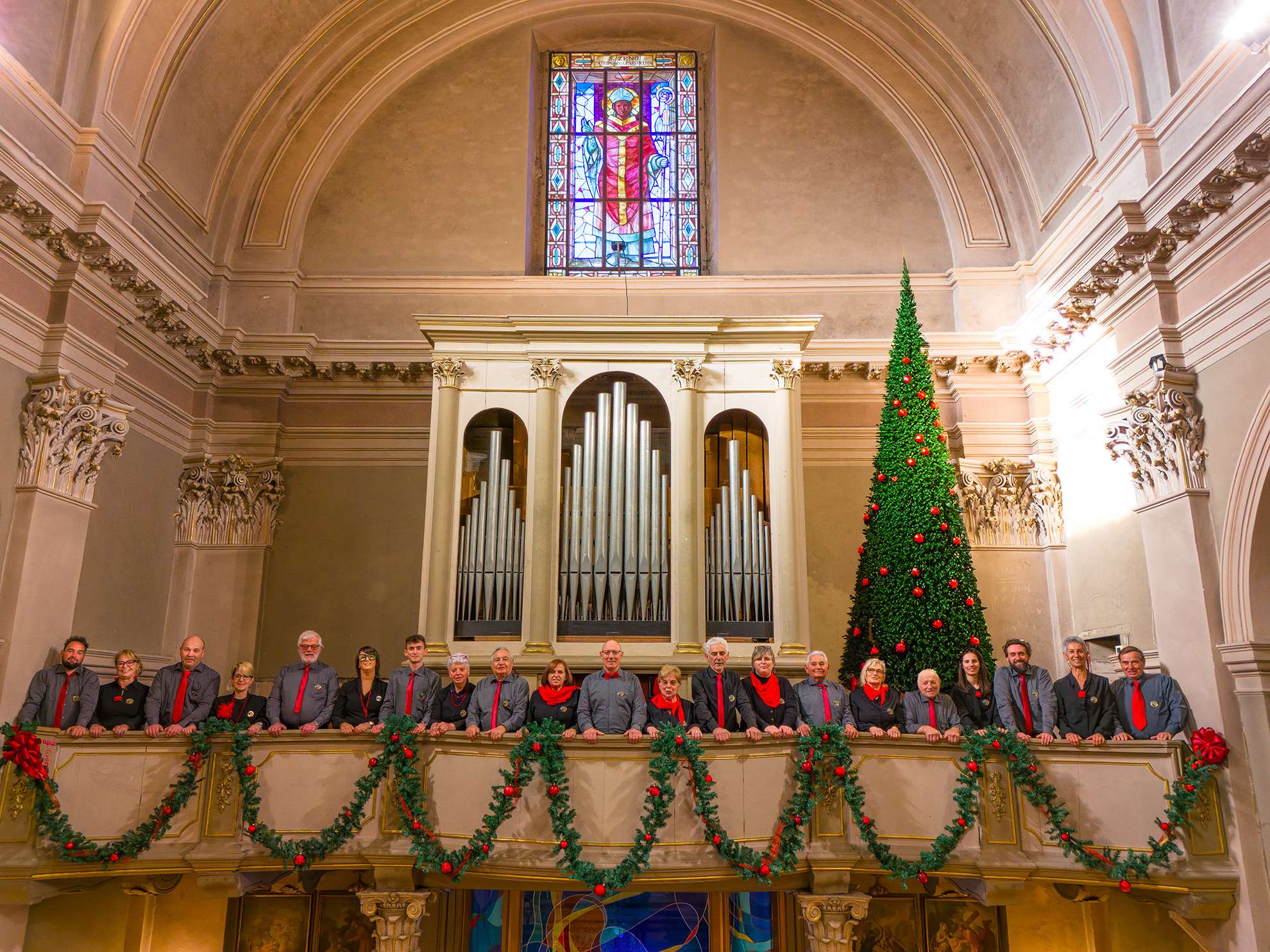Every year, on 7 December, the ‘San Zeno’ Choir opens its winter review by hosting the best choirs on the podium for an all-Christmas evening, which starts to warm up the upcoming festive season.
The event is open to all, free of charge, and will be held at the Parish Church of San Zeno di Montagna at 20:45.
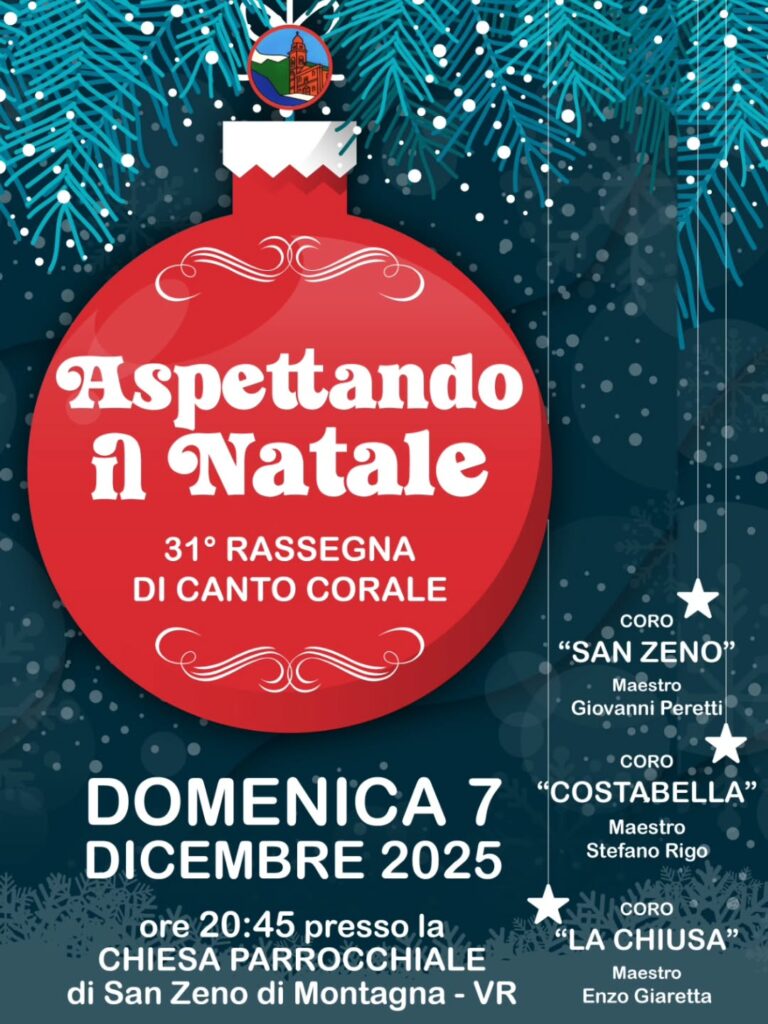
Presentation of choirs
San Zeno Choir of San Zeno di Montagna (Verona)
We leave the word to Ludovico Bonafini, a member of the choir, who introduces it to us with love and passion: ‘I think that many now, when speaking of the San Zeno Choir, recall with their hearts the Alpine and folk songs that resound in the air of our village. In fact, this group has existed and lived in our area for 30 years, ever since, back in 1994, some fellow villagers decided to set out on this adventure.
Over the years, some members have left us, but new ones have been added, and, whether it is because we sing, or because we drink and eat together, the choir is still a beautiful reality, for meeting, laughing, but also for learning. To date we are about twenty people, led by maestro Gianni Peretti.
Choirs like ours are formed by volunteers who, to cheer up those who listen and to keep the songs of yesteryear alive, get together and, despite the difficulties, try to coordinate, to stretch
the ear to those who are near. Sometimes they get out of tune, then correct each other, sometimes they get lost, then exchange a glance. ‘Ghe vol testa’ (it takes head), says the teacher, and we all gleefully reply ‘ma testa non ghe n’è’ (but head there is none).
We are not perfect, but one thing is certain: we are still there, we are happy to be and sing together! And this is also demonstrated by our annual calendar: a Christmas festival, one for the Palms, ‘Poets in Court’ on the first Saturday in July, and others that are added during the year, because we organise them or because we are invited elsewhere. In short, amidst memories, events, people, notes and keys, we still sing, and I don’t know if we sing in perfect tones or with dulcet high notes, with confident basses or even tenors, but just the same, but certainly, this I say, with definitely loyal intentions.’
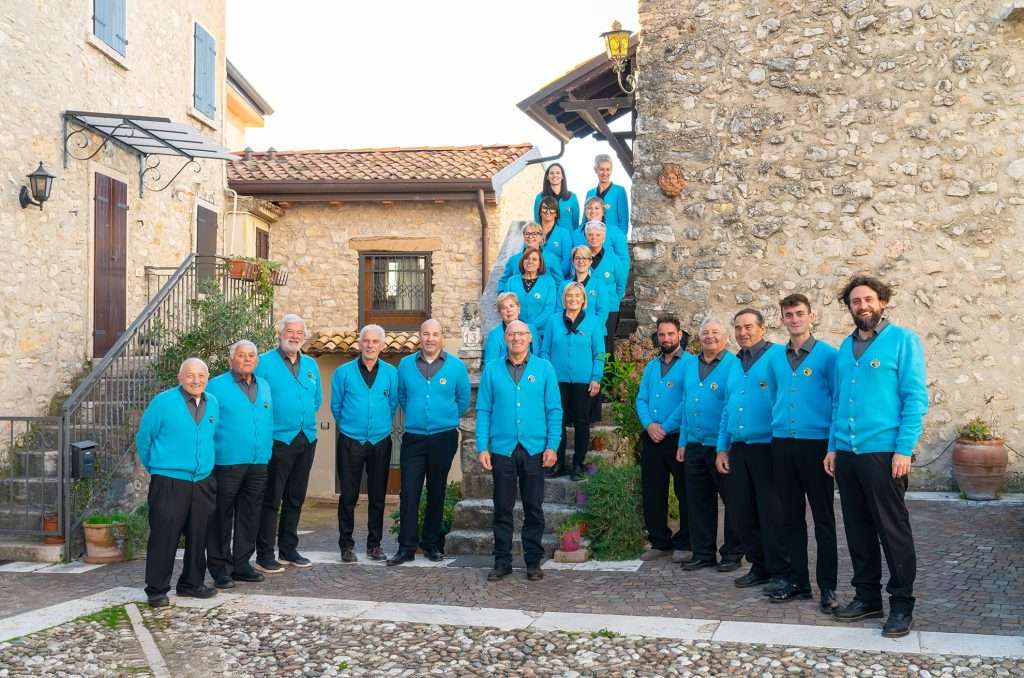
La Chiusa Choir of Volargne (Verona)
The La Chiusa choir was founded in 1971 in Volargne by a group of friends who shared a passion for choral singing. It started from nothing, in a village that had been destroyed by war.
After the initial stages, it grew to its current size of around 48 members, achieving remarkable goals without ever losing sight of the spirit that has always animated the group, namely the pursuit of sincere friendship and extreme attention to the situations of less fortunate people.
This led to a series of concerts of the highest artistic calibre: – Concert with the Piccolo Coro dell’Antoniano – Evening with the Royal Dutch Band – Concert at the Teatro Regio in Parma – Evening with the NATO General Staff – Concert for His Holiness John Paul II in Castel Gandolfo – Animation of Holy Mass in the Vatican – Appearances on RAI networks, etc. and initiatives of high humanitarian value such as: Concert at the Rizzoli Hospital in Bologna – long-distance adoption of children – Visits to care facilities – Active commitment to earthquake and flood victims – Aid to children in Belarus and Santo Domingo, etc.
We have many, many friends scattered from Valle d’Aosta to Sicily, passing through Sardinia, and from the North Sea to the Mediterranean, the result of 5 recordings and about 1150 concerts performed throughout Italy and half of Europe.
Since 1986, the choir has been conducted by Maestro Enzo GIARETTA.
Experience Lake Garda: Our tips
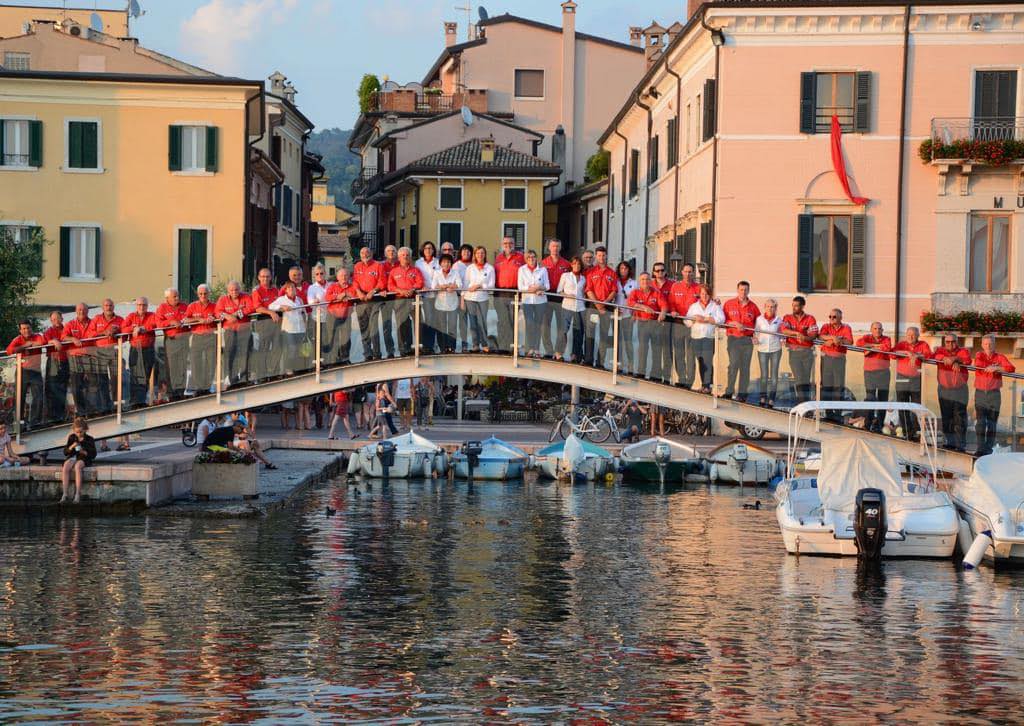
Costabella Choir of Lazise (Verona)
The Costabella Choir was founded in 2005 in Pacengo di Lazise. Its name pays homage to the Cima Costabella peak of Monte Baldo, which overlooks the wider part of Lake Garda.
It is made up of a group of enthusiasts and has around 30 male voices, divided into first and second tenors, baritones and basses.
In 2008, it released the CD “Il NOSTRO CANTO”, which summarised its early period dedicated to popular mountain songs and Alpine chants. It performs songs that tell stories of good, simple men and is enchanted by the poetry of the seasons. It is currently directed by Maestro Stefano Rigo, who is keen to promote the classic versions of musicians who have marked the history of Italian choral music, with particular attention to new harmonisations proposed by composer friends. Over the last decade, the Costabella Choir has become known and appreciated locally and beyond, representing the municipality of Lazise on various occasions in its twinning with the German town of Rosenheim and organising numerous concerts.
Every year, it offers a rich programme of musical events with the welcome participation of other choirs and the collaboration of prestigious orchestras.
